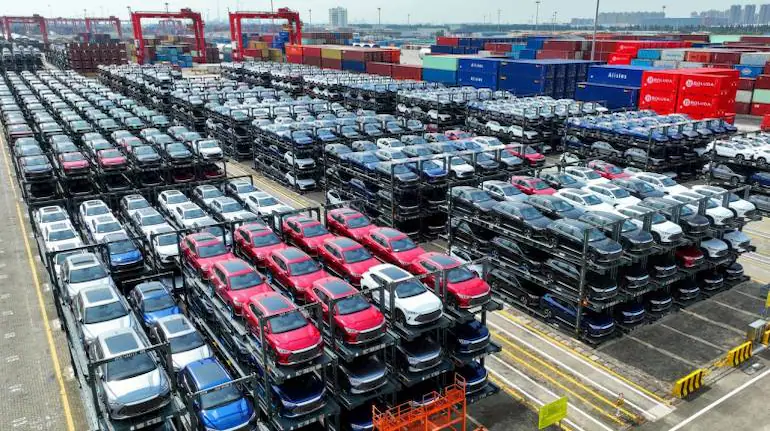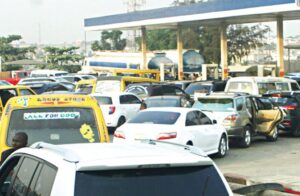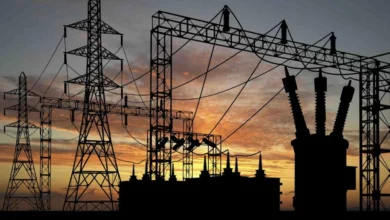20 budget-friendly cars with low maintenance costs – Report

With the removal of fuel subsidy in Nigeria and the frequent challenges of fuel scarcity, vehicle maintenance and fuel efficiency have become crucial considerations for many Nigerians.
As the cost of fuel soars, the need for cars that offer both low fuel consumption and affordable repair costs is more pressing than ever.
Additionally, the economic climate demands vehicles that can withstand Nigeria’s road conditions while keeping maintenance expenses minimal.
PUNCH Online explores 20 of the cheapest vehicles to maintain in Nigeria, focusing on those that strike the perfect balance between fuel efficiency, durability, and repair affordability amidst the current economic challenges.
The price range estimation could be based on the Nigerian market, where factors like import duties, exchange rates, and vehicle conditions (new or used) can significantly influence the final cost.
New vs Fairly Used?
When considering the best vehicles for Nigeria’s current economic situation, it’s important to weigh the options between new, fairly used, and Tokunbo (foreign used) cars.
New cars offer the advantage of a warranty and the latest technology, but they come with a higher price tag, depending on the model.
Fairly used cars, typically Nigerian-owned and driven, provide a middle ground, offering good-conditioned vehicles at a more affordable price.
Tokunbo cars, often imported from abroad, are popular for their lower prices, depending on make, model, and year.
However, while Tokunbo vehicles are budget-friendly, buyers should carefully inspect them to avoid hidden repair costs, as some may have been subjected to harsher conditions abroad.
Fuel efficiency
Fuel efficiency is like how far your car can go on a certain amount of fuel. If a car has a fuel efficiency of 30–40 miles per gallon (mpg), it means that for every gallon of fuel you put in, the car can travel between 30 and 40 miles.
So, if you imagine pouring a gallon of fuel into your car (about 4 litres), and then driving, the car will keep going for 30 to 40 miles before using up that gallon. A higher mpg number means the car uses fuel more efficiently, letting you drive farther on the same amount of fuel.
In simple terms, a car with good fuel efficiency means you’ll spend less money on fuel because the car doesn’t need as much of it to go the same distance.
Each option has its pros and cons, making it crucial to align your choice with your budget, maintenance capacity, and long-term vehicle needs.
When considering both fuel efficiency and repair costs, here are 20 of the cheapest vehicles to maintain:
1. Toyota Corolla

Fuel Efficiency: 30-40 mpg
Repair Costs: Low
Why: Known for reliability and easy-to-find parts.
2. Honda Civic

Fuel Efficiency: 28-42 mpg
Repair Costs: Low
Why: Durable engine and minimal maintenance issues.
3. Toyota Prius

Fuel Efficiency: 50+ mpg
Repair Costs: Moderate
Why: Hybrid technology reduces fuel costs significantly.
4. Mazda3

Fuel Efficiency: 26-36 mpg
Repair Costs: Low
Why: Reliable and offers good fuel economy with low maintenance.
5. Hyundai Elantra

Fuel Efficiency: 28-38 mpg
Repair Costs: Low
Why: Offers a balance of good fuel efficiency and affordable maintenance.
6. Ford Fiesta

Fuel Efficiency: 27-35 mpg
Repair Costs: Low
Why: Compact car with affordable parts and good fuel economy.
7. Kia Forte

Fuel Efficiency: 27-39 mpg
Repair Costs: Low
Why: Low cost of ownership and maintenance.
8. Honda Fit

Fuel Efficiency: 31-36 mpg
Repair Costs: Low
Why: Subcompact, reliable, with low fuel and repair costs.
9. Toyota Yaris

Fuel Efficiency: 30-40 mpg
Repair Costs: Low
Why: Small, efficient, and cheap to maintain.
10. Chevrolet Spark

Fuel Efficiency: 30-38 mpg
Repair Costs: Low
Why: Compact size and low repair costs.
11. Nissan Versa

Fuel Efficiency: 27-35 mpg
Repair Costs: Low
Why: Budget-friendly with low cost of maintenance.
12. Subaru Impreza

Fuel Efficiency: 28-36 mpg
Repair Costs: Low
Why: All-wheel drive with good fuel efficiency and affordable maintenance.
13. Volkswagen Golf

Fuel Efficiency: 29-37 mpg
Repair Costs: Moderate
Why: Reliable with a strong track record for fuel efficiency.
14. Hyundai Accent

Fuel Efficiency: 28-38 mpg
Repair Costs: Low
Why: Simple design with a focus on affordability.
15. Ford Focus

Fuel Efficiency: 26-36 mpg
Repair Costs: Low
Why: Compact and cheap to run.
16. Mitsubishi Mirage

Fuel Efficiency: 33-41 mpg
Repair Costs: Low
Why: One of the most fuel-efficient non-hybrid vehicles.
17. Honda Accord

Fuel Efficiency: 22-34 mpg
Repair Costs: Moderate
Why: Mid-sized, reliable, with good long-term maintenance costs.
18. Toyota Camry

Fuel Efficiency: 25-39 mpg
Repair Costs: Moderate
Why: Known for durability and low repair costs.
19. Nissan Sentra

Fuel Efficiency: 29-39 mpg
Repair Costs: Low
Why: Efficient, with low maintenance needs.
20. Kia Soul

Fuel Efficiency: 27-35 mpg
Repair Costs: Low
Why: Compact with a focus on affordability and low repair costs.
These vehicles are well-regarded for their combination of fuel efficiency, reliability, and low maintenance costs, making them ideal choices for budget-conscious drivers.
Any car missing?
We understand that the Nigerian automotive market is vast and diverse, with many vehicles that might also fit the criteria of low maintenance costs and fuel efficiency.
If you have any recommendations for cars that should be on this list or want to share your experiences with a vehicle that has served you well in these challenging times, we’d love to hear from you!
The Punch











